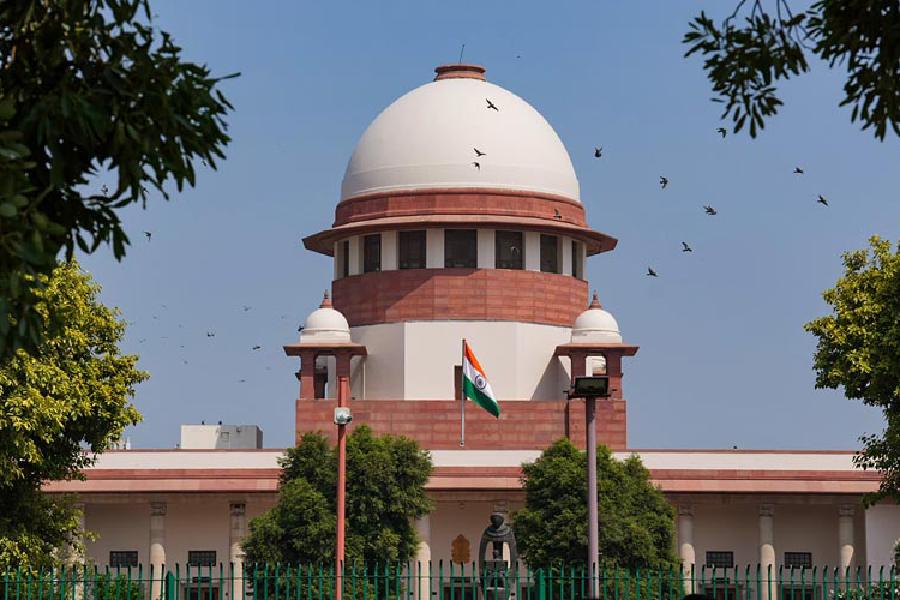The Supreme Court on Tuesday directed former Bihar MP Anand Mohan, whose premature release from a life sentence in the 1994 lynching of district magistrate G. Krishnaiah had triggered nationwide outrage, to immediately deposit his passport and report to the local police authorities every fortnight.
Despite facing life imprisonment for leading a mob that lynched Krishnaiah, Anand Mohan walked out of jail on April 24 last year under the Bihar government’s remission policy, which has been challenged by the slain IAS officer’s wife.
A bench of Justice Surya Kant and Justice K.V. Viswanathan passed the direction after hearing senior advocate Sidharth Luthra appearing for Uma Krishnaiah, wife of the slain district magistrate who questioned the Bihar government’s decision on the ground that it was contrary to several apex court judgments that convicts are not
entitled to any automatic release upon completion of 14 years of imprisonment.
Luthra further complained that the Centre had failed to file its response on the issue despite being served with a notice way back in May last year.
“This case is dragging on. It is bizarre that he had spent only a few years in jail. The Union of India was served with a notice in May last year and they are still seeking time…,” Luthra told the bench.
The senior counsel then said he would require just 30 minutes to convince the court that Anand Mohan’s premature release order ought to be quashed.
Justice Surya Kant, heading the bench, then said that a last opportunity was being given to the Centre to file its counter-affidavit on the issue and posted the matter for further hearing to February 27. Senior advocate Ranjit Kumar appeared for the
Bihar government.
According to the petition filed by Uma in the apex court, the sentence of imprisonment for life given to a convict as a substitute for the death sentence must be viewed differently and segregated from the ordinary life imprisonment given as the sentence of first choice. Life imprisonment, when awarded as a substitute for the death penalty, has to be carried out strictly as directed by the court and would be beyond the application of remission.
Uma referred to the apex court’s earlier judgment in the Swamy Shraddananda v. State of Karnataka (2008) case and subsequently upheld in Union of India v. Sriharan (2016) by a five-judge constitution bench that held that there cannot be any automatic release of a convict upon serving 14 years in jail as a sentence of life imprisonment means the person has to be in jail for the remainder of his normal life span.










